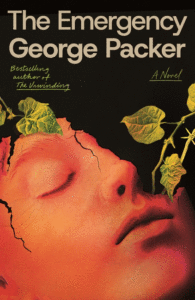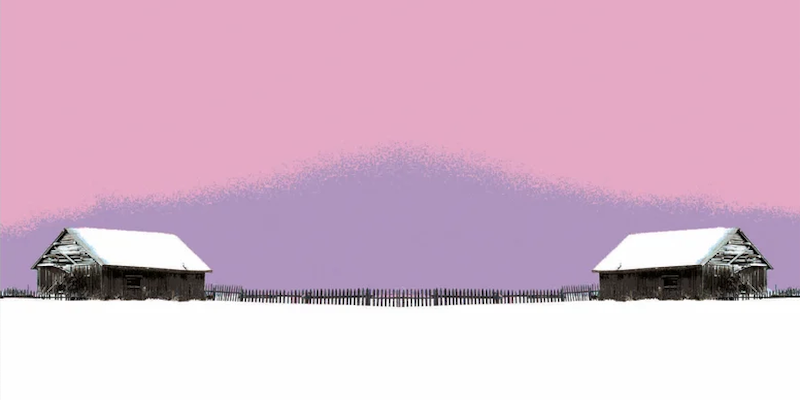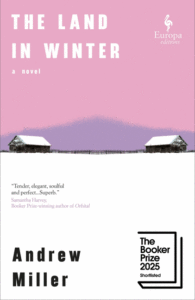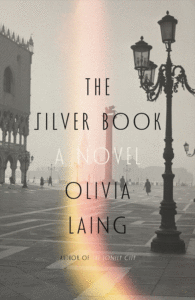Our feast of fabulous reviews this week includes Ron Charles on Thomas Mallon on Andrew Miller’s The Land in Winter, George Packer’s The Emergency, Jessica Winter on Joseph Luzzi’s The Innocents of Florence, Francisco Goldman on Scott Wallace’s Central America in the Crosshairs of War, Lucasta Miller on Olivia Laing’s The Silver Book.
Brought to you by Book Marks, Lit Hub’s home for book reviews.
*
“The lines of Andrew Miller’s historical novel The Land in Winter fall as peacefully and lethally as snow. His plot—loneliness and adultery in a small English village—would seem to offer all the surprises of an old sweater, but in Miller’s exquisitely written book, every scene is hypnotic.
…
“For longtime fans of Miller’s work, the only mystery is why his reputation remains so faint on this side of the Atlantic. Here is a writer of such intimate and insightful prose that stealing away with him for a few hours in another world feels closer to trespassing than reading.
…
“It’s not until this complicated matrix of secrets and yearnings is established that Miller shifts the weather. ‘In the cone of light,’ he writes, ‘the flakes skittered, twisted, seemed briefly to rise rather than fall, then fell decisively, filling the darkness with a whispering that had no clear source, no centre.’ Blanketed with snow, frozen in place, sure of their comfort until they’re not, how will these two troubled couples ride out one of the most devastating winters on record? Miller never even hints at the comparison, but given the freshness of our own covid-19 lockdowns, he doesn’t need to. As we once were, these people are pinned in place. Venturing outdoors involves risks, possibly death, while remaining inside incurs its own costs. The storm might block the roads, freeze the rivers and clog the rails, but, after the initial beauty melts away, it heightens everyone’s restlessness, everyone’s sense that something must change, if not for the better, then at least soon. ‘They were in the world differently now,’ Miller writes, ‘people understood that.’
…
“I don’t mean to suggest that The Land in Winter is a covid novel dressed up in country woolens. Indeed, as the Walter Scott Prize judges noted, what’s so remarkable about Miller’s story is the way it’s steeped in the details and attitudes of its own era and place. The greater world might be rocketing ahead into the space age, the Beatles and miniskirts, but 17 years after World War II, Miller’s characters in this little village are still haunted by the horrors and deprivations of that conflict. The blackout curtains are tucked away in the cupboard; the attic is well-equipped just in case German soldiers invade. The snow will eventually stop falling. The temperature will rise. We know that; they know that. But when this crisis passes, the land will show what’s been done. That’s the thing about ice—and great writing: As it crystallizes, it grips slowly, quietly, with crushing impact.”
–Ron Charles on Andrew Miller’s The Land in Winter (The Washington Post)

“A dozen years ago, George Packer began The Unwinding, his best-known book of reportage, by stating that no one knew ‘when the coil that held Americans together in its secure and sometimes stifling grip first gave way.’ Two presidents and a pandemic later, in Last Best Hope: America in Crisis and Renewal, he spoke of ‘a people divided into warring tribes and prone to violence.’ So it is hard, in the ever-darkening present, not to see The Emergency, Packer’s first novel since the 1990s, as a dystopian allegory of what might be ahead for the blue-versus-red United States.
…
The novelistic world-building that sets up Packer’s empire is never especially vivid, but the system’s demise makes for some gruesomely absorbing stretches. The Burghers lurch leftward into a sort of woke totalitarianism: Old statues come down, a new ideology called Together is enforced through anodyne newspeak and revolutionary slogans (‘I am no better and neither are you’), and what we today call anticipatory obedience becomes the rule. Having previously edited two volumes of George Orwell’s essays, Packer has a fine Orwellian time laying all this out. He sets forth a society where disagreement now means the coerced mass changing of minds, a quick alternation of unanimities.
…
“To a novel that starts out quite promisingly, the mash-up of literary modes eventually brings not range but entropy. There is a strong intelligence behind The Emergency, but Packer would have done well to take a further cue from Orwell by restricting his book to the atmospheric unity of Animal Farm or 1984. Over-the-top features—like the catapult that flings massive amounts of human excrement into the Burgher realm—only undermine his laudable intentions. As readers go about living their real lives in a country that is daily more frightful and lawless, it doesn’t do them much inspirational good to ponder an allegory likely to make them think: Well, things won’t get that bad.”
–Thomas Mallon on George Packer’s The Emergency (The New York Times Book Review)

“The Innocenti became a warehouse for such secrets. It was a home for children whose parents were lost, but not necessarily dead. With its grand arcade of columns and arches—topped by glazed terra-cotta babies in swaddling clothes, designed by Andrea della Robbia—the Innocenti’s serene façade veiled a bleak interior landscape. Similarly, the placid title of Joseph Luzzi’s new book, The Innocents of Florence: The Renaissance Discovery of Childhood, belies the sexual violence, family separation, child abuse, and mass death that the author chronicles amid the historic Tuscan superbloom of human creativity and innovation.
…
“I was surprised, although perhaps I shouldn’t have been, at how often the present intruded on Luzzi’s slender and compelling book about the past. Since the Dobbs decision abolished the constitutional right to abortion, in 2022, at least ten states have passed new or expanded ‘safe haven’ laws for relinquishing infants, and hundreds of temperature-controlled ‘baby boxes’ have cropped up in Indiana, Kentucky, and elsewhere—the contemporary equivalent of the Innocenti’s holy-water font. In the past few years, multiple states have introduced or enacted legislation that relaxes child-labor laws; in Iowa, for example, a fourteen-year-old now has the opportunity to work in an industrial laundry or a meat freezer. ice agents separate children from their parents every day, and we are told that President Trump’s top immigration ghouls want to accelerate the pace of these ruptures, in order to pressure more families to leave the U.S. Paying for Renaissance masterworks while the children in your charge are living on crusts and jerky seems preferable to, if not entirely unlike, spending hundreds of millions to bulldoze the East Wing for a chintzy ballroom weeks before food-stamp benefits are set to expire. It can be hard to locate oneself in the correct century.”
–Jessica Winter on Joseph Luzzi’s The Innocents of Florence: The Renaissance Discovery of Childhood (The New Yorker)

“Scott Wallace’s Central America in the Crosshairs of War; on the Road from Vietnam to Iraq is really several books at once that cohere into a magnificent whole. It is the evocative, at times nostalgic, at others harrowing, personal account of a young journalist’s coming of age during his first foreign journalism assignment, always keenly observant and thoughtful. But it also offers a carefully developed analysis of the nature of U.S. foreign policy, at least in those poorer parts of the world where it has intervened militarily or more clandestinely, or heavily supported the wars waged by its clients. Wallace has witnessed these wars both earlier and later in his life, as a citizen and journalist.
These two parts are juxtaposed with a third, the remarkable photo essay that runs the length of the book, in always fascinating, illuminating, at times devastating, relation to the prose. So many of these photos are movingly intimate, showing the very people and settings Wallace is writing about, often on the facing page. We feel as if we are seeing them as Wallace saw them, and as he remembers them. These faces, in a sense, constitute the beating heart of Wallace’s book.
…
“At the end of the book, an Iraqi woman tells Wallace, ‘The thing I want now more than anything else is that, one day, you people in the United States will be made to suffer like we have suffered here.’
Wallace’s magnificent Central America in the Crosshairs of War offers an indispensable account of what brought us to this moment, when such an outcome could even seem a possibility. Except now it would be our own government, corrupted institutions, and their most extremist supporters imposing that suffering on the rest of us.
Except we now have a U.S. government and supporters that would inflict that suffering on its own people.”
–Francisco Goldman on Scott Wallace’s Central America in the Crosshairs of War; on the Road from Vietnam to Iraq (ReVista)
“What can the novelist offer that the biographer cannot? In Laing’s case, it is economy of words: a prose that pares down and transforms the messiness of the real into sentence after sentence of unforced lucidity. Descriptive writing can often seem labored, but the author’s scene-setting is managed with deftness…
…
“This is a gripping novel that is, in many ways, a technical tour de force. Few writers can sustain such pace while using the potentially static-feeling historic present tense. The shifts in viewpoint—now from Nicholas’s, now Danilo’s—are glitchless. Yet, because the sense of narrative propulsion depends on aspects of Nicholas’s past being held back until later, he is not painted with the fully three-dimensional inner life of which the novel form (unlike film) can be uniquely capable.
On the other hand, it is perhaps too neat when Laing makes Pasolini open himself up to Nicholas in a moment of intimate platonic secret-sharing. The real Pasolini remains an inscrutable and complicated figure, as much an unclosed case as is his own death. The Silver Book is a distilled take on reality that is ultimately an illusion, not simply because of the things it makes up, but because it irons out complexities in its pursuit of beauty.”
–Lucasta Miller on Olivia Laing’s The Silver Book (Times Literary Supplement)


